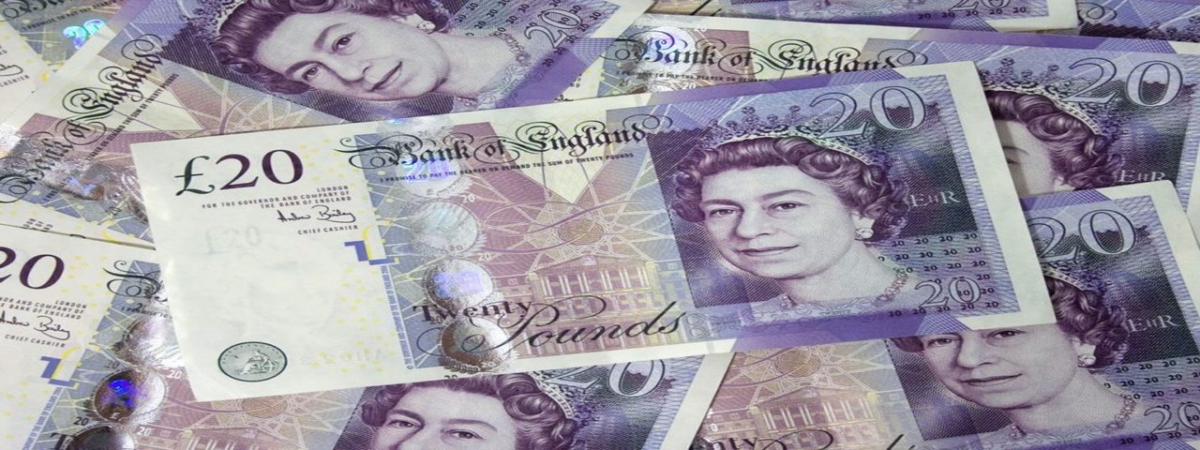Corbyn’s wage cap is the politics of envy and spite
SUGGESTED



Although the Labour Party leader has declined to identify exactly where the earnings threshold would lie, he told Sky News it would be “somewhat higher” than the £137,000 he pockets as Labour leader. We can assume that this probably wouldn’t apply to Trade Union officials either – although Labour-supporting celebrities could see themselves considerably out of pocket. He has also confirmed that footballers will be targets of his wage cap, along with top bosses.
The arguments against maximum earnings are numerous and overwhelming – explaining why the majority of Brits don’t support the policy. A national wage cap – a policy that effectively amounts to a 100% tax rate on all income above that level – would crush innovation in a highly competitive world. Its anti-aspirational message would reverberate through all levels of society, suggesting that wealth is innately harmful. It would be disastrous for social mobility – crushing not only aspiration but the ability of poorer people to ever earn as much as the ‘landed gentry’, thereby cementing the status quo of ‘old wealth’.
Even worse, these kinds of proposals mislead those on low wages to thinking that cuts at the top will translate to direct top-ups to salaries at the bottom. There is simply no evidence that high earners deprive others of wealth. Historically, prosperity and incomes have skyrocketed precisely because wealth accumulation is *not* a zero-sum game. Ideally we want more millionaires and billionaires who can contribute to our economy in a positive way, not fewer.
If you want a perfect illustration of the problem, just imagine what would happen if wage caps were imposed in football. If footballers’ salaries were, as Corbyn suggests, capped slightly above £137,000 – the Rooneys and Pogbas would face a choice between earning £150,000 in Britain, versus tens of millions in Europe, the US, Latin America or the Middle East. Like most earners in the £150,000+ bracket, footballers are internationally mobile. Who in their right mind believes that they would stay in the UK?
When pushed by reporters to give more information on the policy, the Labour leader’s reply was telling. “The point I’m trying to make”, he said, “is that we have the worst levels of income disparity of most of the OECD countries.”
This statement is full confirmation – if anyone needed it – that Labour’s current leadership is wholly concerned with intentions, not outcomes. When faced with scrutiny, Corbyn simply referred back to the perceived problem of inequality, instead of offering evidence-based justification for his proposal.
To Corbyn and his acolytes, the very existence of inequality is reason enough to justify the kinds of policies that, when enacted elsewhere, have led to top talent leaving the country in droves and everyone being worse off as a result. To borrow Churchill’s phrase, “the equal sharing of misery.” As Corbyn’s statement demonstrates, the only basis for this cap is that high pay instinctively ‘feels wrong’. But pursuing policies based on instinct is no way to govern.
In 2015, official government figures showed that the highest paid 3,000 people in the UK paid more income tax than the bottom nine million. Verbal attacks on the 1% (or 0.001%, in this case), are fairly innocuous, and what you’d expect from a party concerned with inequality. But creating the conditions for a mass exodus of the wealthy is not just idle talk. Corbyn’s pledge to cap salaries would in turn cap the nation’s tax take – and all for the politics of envy and spite.
6 thoughts on “Corbyn’s wage cap is the politics of envy and spite”
Comments are closed.





great blog – nail on head.
Clearly and succinctly explained!
“If footballers’ salaries were, as Corbyn suggests, capped slightly above £137,000 – the Rooneys and Pogbas would face a choice between earning £150,000 in Britain, versus tens of millions in Europe, the US, Latin America or the Middle East.”
Quite right, of course. However, you don’t explore fully what this would mean. It would mean the decline of the premier league relative to leagues in other countries. Less money then would come into the country for TV rights. etc.. Because this money pays for footballers high salaries, top quality training facilities, etc. then the tax revenue from these things would decline (when a footballer is paid £5m p.a., over £2m ends up in the Treasury). This collapsing tax revenue would mean more of the ‘austerity’ that Corby denounces.
Brilliant analysis of the politics of envy which informs most of Corbyn’s pronouncements. A measure like this would simply usher in a return to the 1970s when Chancellor Healey promised to
Denis Healey promised to “squeeze the rich until the pips squeak” – and did. The top rate of income tax rose to 83 per cent and reached 98 per cent when an investment income surcharge was applied –
which produced, unsurprisingly, a resulting exodus of brains and talent.
It was even worse in the 1968 economic crisis when Roy Jenkins imposed a special income tax levy for one year only on “unearned income” or savings and investment returns.
Someone with investment income of more than £6,000 would pay tax of 20 shillings and nine pence – or £1.04 today – for every £1 of income. If you had investment income above £15,000 you’d pay total taxes of 27 shillings and three pence or £1.36 on every £1. Last one to leave the country, turn the lights out.
Don’t tell Corbyn, fergawdsake. It might give him ideas!
Bang on! A cogent analysis of the politics of envy which informs most of Corbyn’s pronouncements. A measure like this would simply usher in a return to the 1970s when Chancellor Healey promised to “squeeze the rich until the pips squeak” – and did. The top rate of income tax rose to 83 per cent and reached 98 per cent when an investment income surcharge was applied – which produced, unsurprisingly, an exodus of brains and talent.
Your talking about an idea which is still in its infancy. Previous discussions have suggested that each company could manipulate their top pay bracket as it would be set at 20x their lowest pay bracket. If a company employs thousands of minimum wage staff who go on to claim tax credits then any incentive or legislation to raise those people’s wages is a net increase for government coffers. It is alarming to any person with an interest in fairness that some companies have pay differentials of over 200x between the top and bottom earners.
We are taught that free market economics causes a trickle down effect but what we are witnessing is the growing division into super rich and struggling poor. This is one of a number of ideas that attempt to combat a problem which is becoming entrenched as the material & education requirements for basic employment increase and the burden on the state from those in substandard employment go on to have no savings for retirement and children who don’t have the education to get a decent job: this vicious cycle needs stopping.